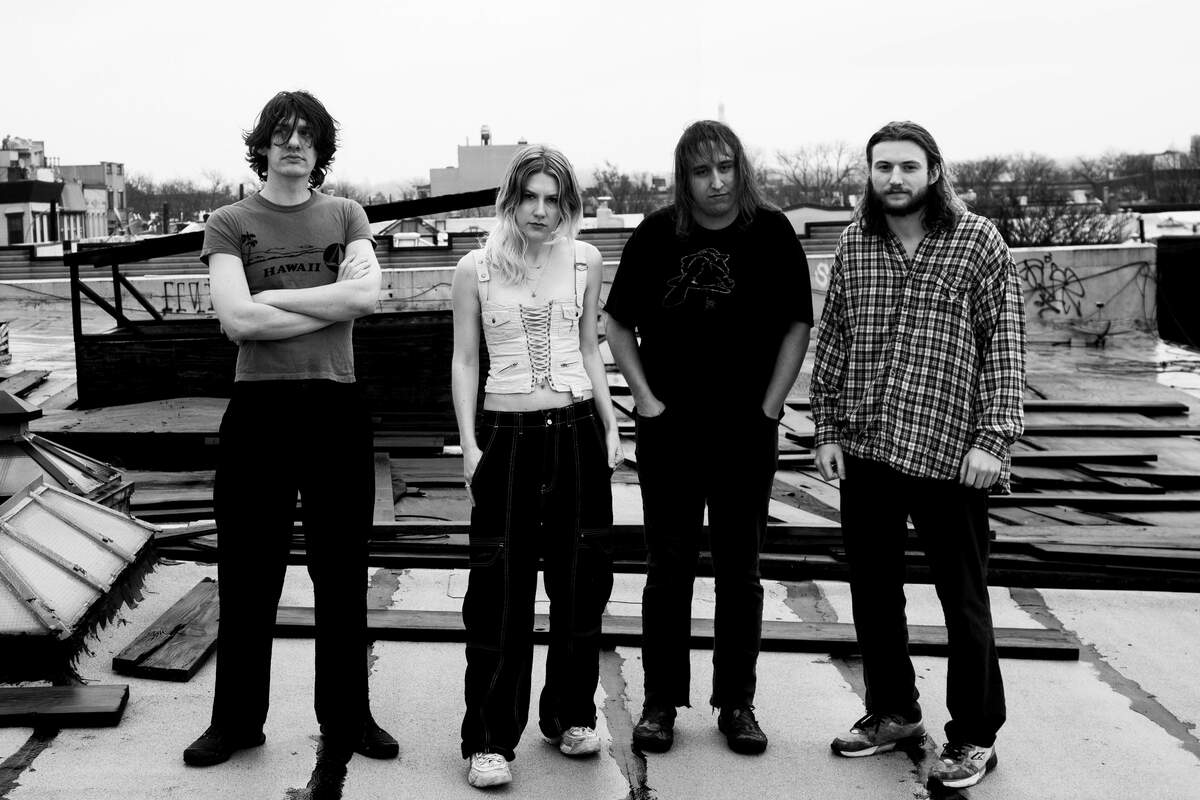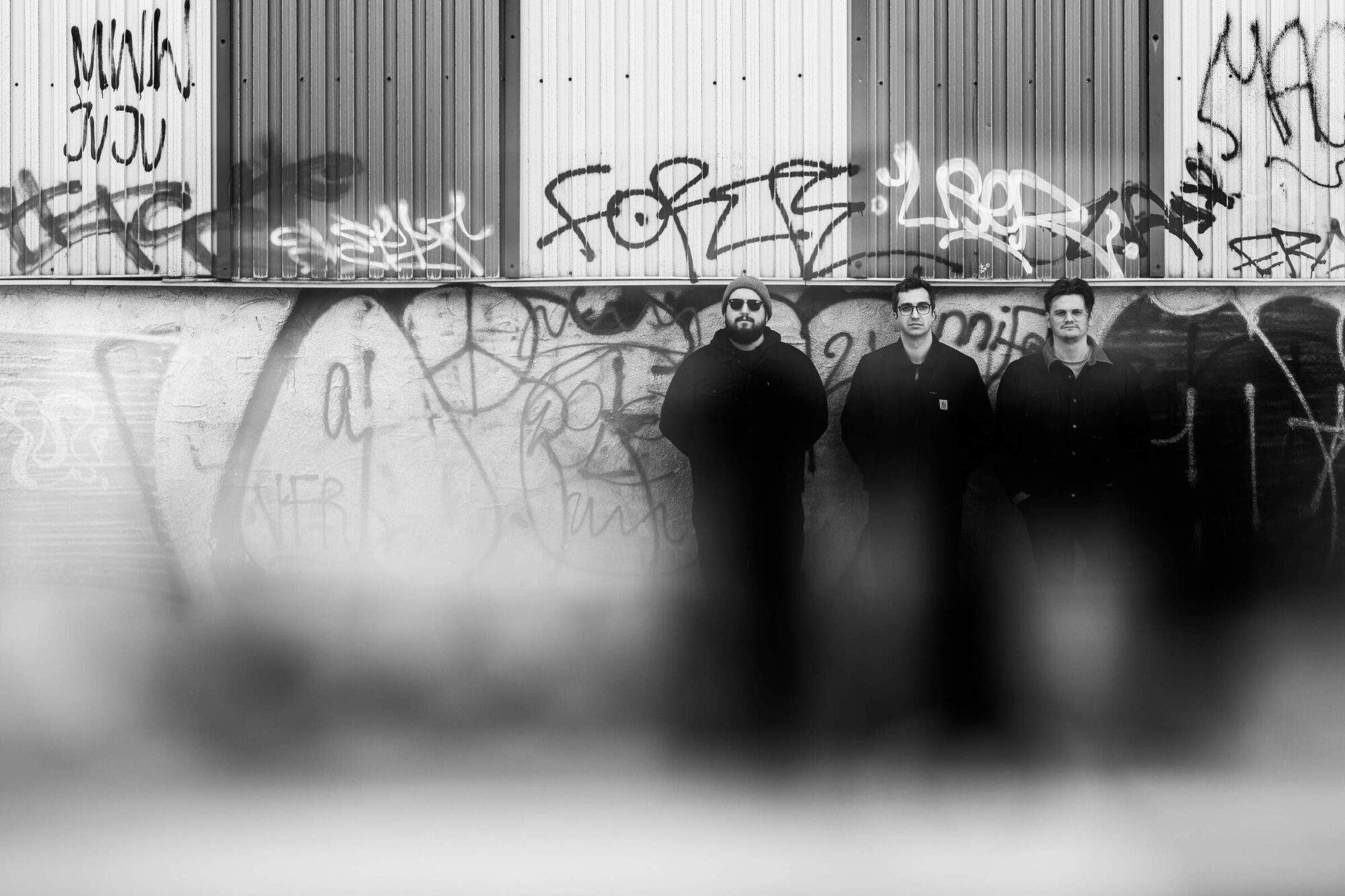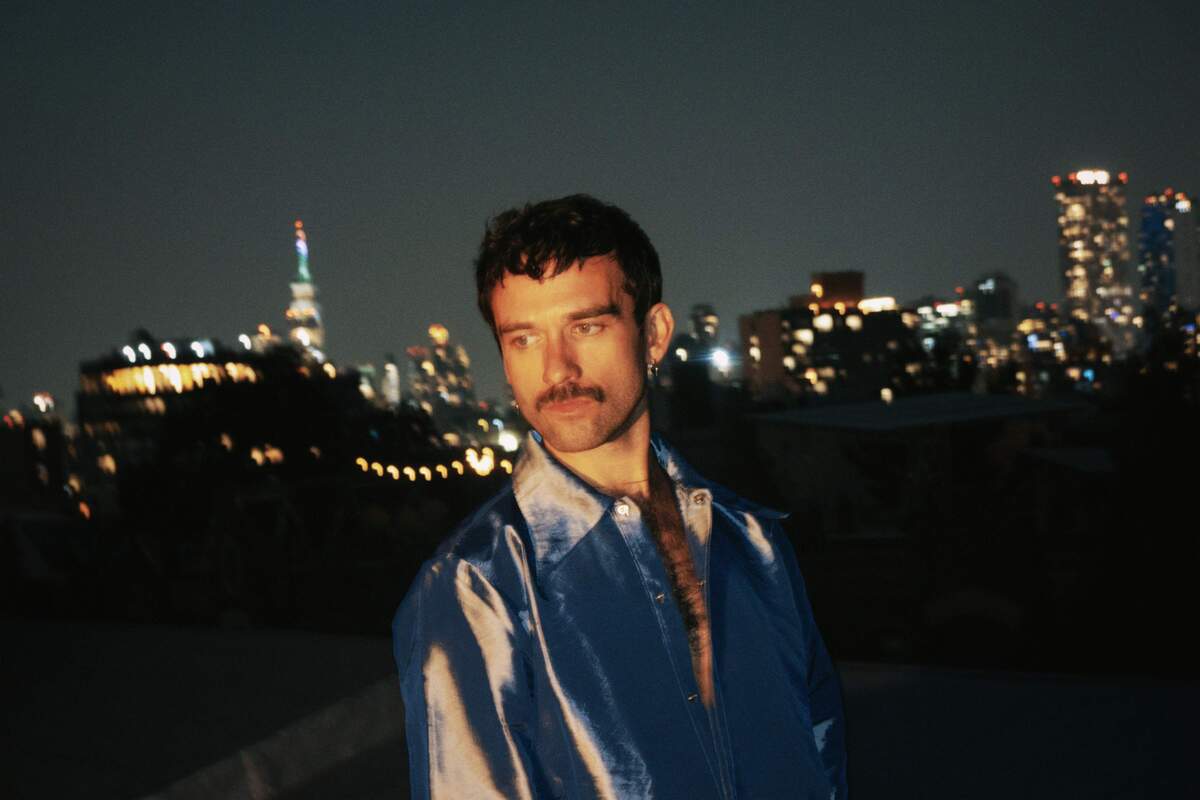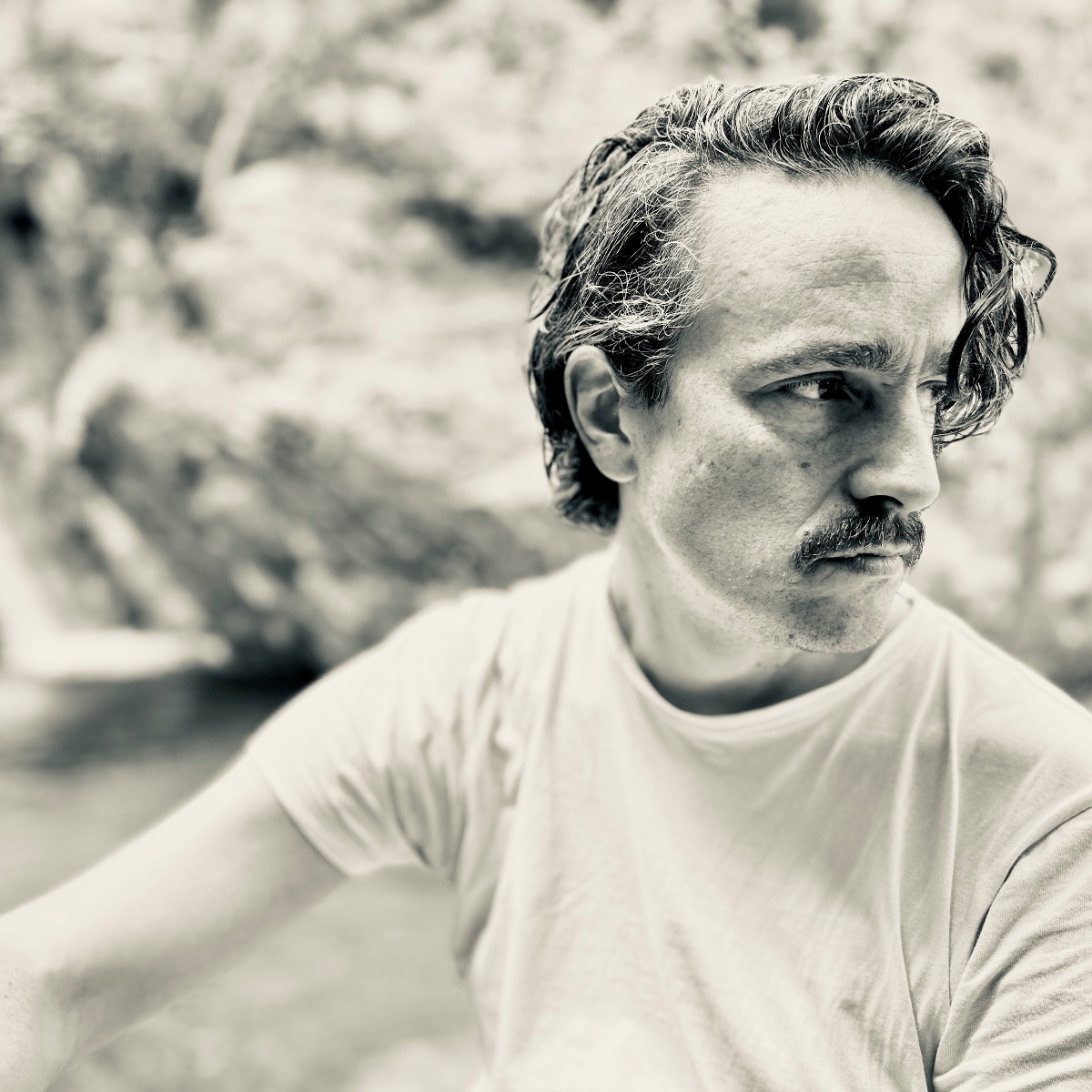Laveda’s ‘Love, Darla’: Born in the Subways of NYC
The sound of Laveda’s new record ‘Love, Darla’ hits with the full force of a New York City subway platform, all metal, sweat, and low-frequency aggression.
Seriously, this is not the dreamy band you heard before. When they packed up from quiet Albany and moved straight into Queens in 2023, they basically funneled that whole urban transition right into their guitars. The result is a considerably darker sound, featuring many allusions to Sonic Youth.
The album runs with the gritty, essential efficiency of the city itself. They take the scraping, industrial noise-that steel-on-steel subway brake feeling-and weave it through moments of total delicacy. You hear the harsh grind, sure, but you also pick up that weird, softer subterranean pulse of water rushing through hidden pipes. Laveda found a way to take the city’s anarchy and turn it into this hypnotic, churning rhythm that just makes you think of “underground.”
They kick off the album with a seriously bold move: a full minute of pure, sustained feedback. It’s a statement, saying, “We’re starting with the noise, and we’re sticking to it.” But they’re masters at bending that distortion into actual melody, turning the heavy feeling of displacement into catharsis.
Tracks like ‘Dig Me Out’ give you these fleeting pockets of quiet, atmospheric space-a quick breather-before they blow up into bliss. Other songs, like ‘Care’ and the surging ‘Cellphone,’ have this amazing forward momentum, like the propulsive menace you might get from an old Swervedriver record or the deeper intensity of early Ride.
Signed to Bar/None, Laveda totally embodies that label’s spirit of indie. ‘Love, Darla’ is a rare living document of a band chasing something special. They’re finding it right there in the sheer volume, the harmonic distortion, and the emotion of their new, loud environment. It’s fantastic.
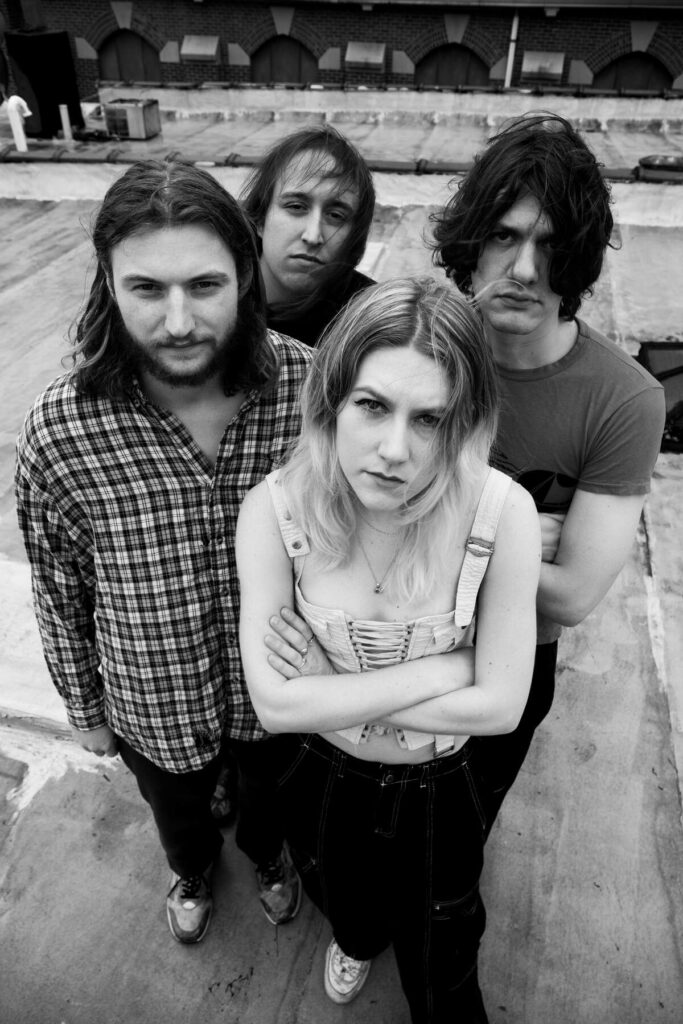
“The 90s is just a period that feels really close to me. I was listening to all that stuff as a kid.”
Okay, so you guys moved from Albany to Queens, and it feels like your sound took on this street-level edge. Was there a specific moment, like a single subway ride or a particularly wild night out, that made you think, “This is it, this is what Love, Darla is going to sound like”?
Ali: There wasn’t one specific moment. I think it was just what came out at the time. I had started to gravitate toward louder, more abrasive-sounding stuff, and I think it’s only natural for me to copy sounds I like, both consciously and subconsciously.
The description of the album name-drops Sonic Youth’s ‘Sister’ and Blonde Redhead. That’s some heavy company. When you’re in the studio, do you ever get that feeling like you’re trying to bottle a certain energy or mood from back then? Is there a “ghost in the machine” of the 90s that you feel like you’re channeling?
Ali: I definitely feel more inspired by older music, specifically 90s rock, noise, and grunge. I didn’t really start listening to new music until I was in college, so I think the 90s is just a period that feels really close to me. I was listening to all that stuff as a kid. Even though I didn’t really live through it, I was raised on it.
There’s a minute of pure feedback at the beginning of ‘Care’. I just love it. What’s the story behind making your listeners wait? What were you trying to say with that minute of glorious noise before the song even kicks in?
Ali: We wanted to have a moment of suspense before the first track actually starts. It’s like when an orchestra is tuning up and you’re eagerly awaiting the first note to kick it all off.
The lyrics on this record are described as “prosaic” and “abstract poems.” It feels like they’re less about telling a straight story and more about capturing a feeling, a moment in time. Is the goal to write something that listeners will interpret in their own way, like a Rorschach test for the ears?
Ali: I’ve always liked interpreting lyrics as a listener. I’ve never been much of a reader, but I do enjoy poetry. I think it allows the reader to open a third eye or allude to something that you wouldn’t normally ever think of. I think certain words paired together are like painting. It’s not always about a literal meaning; it’s the color they create when put together.
The journey from Albany to NYC, and from ‘What Happens After’ to ‘Love, Darla,’ seems to be a real arc for you guys. It’s like you left a place of certain beauty and found a new kind of beauty in the city’s intense momentum. Is it weird to listen to your old music now and think about the people you were when you made it, and the sound you’ve left behind?
Jake: I think I still enjoy looking back on our past music. It reminds me of a different home, y’know? I do also think, however, that it’s not possible to recreate a creative mindset. It always feels artificial when we try to do something similar to an older song. We are never going to make another ‘What Happens After,’ or even another ‘Love, Darla.’ We are going to keep growing in our own lives as well as creatively.
I still like playing old stuff and talking about it. We had very different ears back then. Touring a bunch, I think, has especially changed what we all like and are inspired by.
You’ve been called a “well-oiled machine” now that the whole band is locked in. But let’s be real, creativity is messy. What’s the biggest argument you guys have ever had over a song? And did it make the song better in the end?
Jake: I wouldn’t necessarily call it an argument, but making ‘Cut Sleeves’ was incredibly difficult. We had played the song live like two or three times in a more rock kind of way. Once we recorded it and listened back, Ali and I were just not feeling it. We even tracked vocals over it and everything.
We then tried recording it again when Dan joined the band, in the same session we recorded “bb.” Ali and I sat on it for a few months, but we ultimately still hated it. We eventually said, “Fuck it, we are doing acoustic guitars, a different drum part, and a new bass part that Dan wrote on the spot.” After a two-year struggle, the song finally felt good to us.
It was a great learning experience in that not all things translate live to the studio. That’s why we recorded all our live rehearsals for Love, Darla before taking it to the studio. That way, we knew immediately on the drive home if something wasn’t working.
“I can’t afford a therapist, but I can always write a song.”
‘Dig Me Out’ is described as having a “soft gravity” that pulls you in. It’s a real standout on the record, a moment of calm in the storm. Was it hard to write a song that feels so intense and heartbroken while the rest of the record is so full of “frantic, eruptive energy”?
Ali: Most of ‘Love, Darla’ came very freely to me, which was not really the case for our first two records. I wouldn’t describe it as challenging to write. ‘Dig Me Out’ felt like a natural, needed break in the chaos of my everyday life. That’s why writing music is awesome. I can’t afford a therapist, but I can always write a song.
This record feels like a journey “through the dark undercurrents,” but also about “the world opening up to see the clouds.” That’s some heavy cosmic stuff. Do you feel like making this music is a way of processing the bigger questions about life, the universe, and everything, or is it just about making a killer racket?
Ali: It’s all of those things and more.
Let’s talk gear. The sound on this record is so specific—that scrape, that static. Tell me about the unsung hero of ‘Love, Darla.’ Is there a weird pedal, a specific guitar, or a forgotten piece of studio equipment that gave this record its unique voice?
Jake: Most of the instruments, pedals, and amps used on ‘Love, Darla’ were our own. We really wanted to maintain how we sound live on this specific record.
Finding a vocal mic, however, has always been a moving target for us, depending on the song. We wanted to see if we could use one for the whole thing if possible. We used a Beyerdynamic Soundstar for all the live tracking and really fell in love with how it made Ali’s voice sound for these songs.
I ordered a used one off of Guitar Center’s website for like $150, and we did a mic shootout at our bedroom studio. The Soundstar won, of course. It was especially perfect for tracking the more energetic songs. It allowed Ali to play the music loudly through our speakers while tracking, so she could really get into the character of the song without much bleeding. 10/10 would recommend doing it if you haven’t tried.
You’re now on Bar/None, a label with a legendary catalog. How does it feel to be a part of that family? Are there any artists on the roster, past or present, that you feel a real connection to, a kind of kindred spirit in the noise?
Jake: I heard about Bar/None through the band Winter, actually. After doing some more research on them, I found that they’ve released so much legendary American indie music. I think my favorite would have to be Ivy, especially. I’m super honored to be a part of the roster.
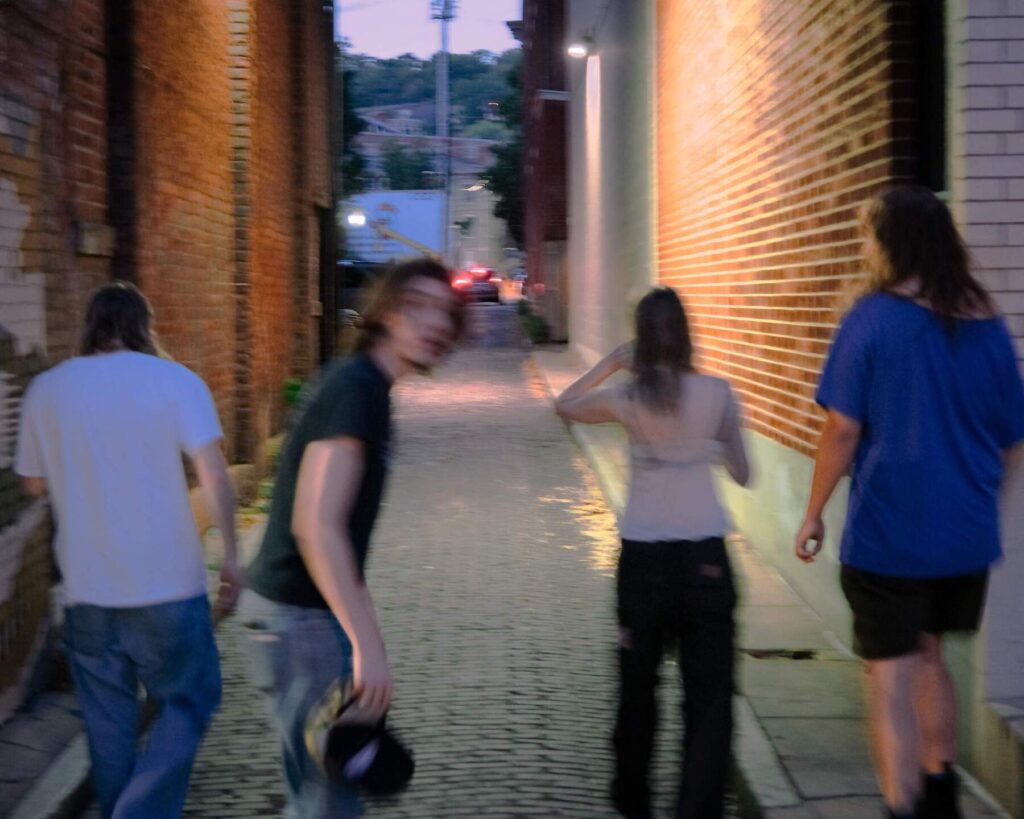
Let’s get real for a second. Your van dies in my sleepy little town, and I invite you over to kill time. My record shelves are a mess, a total reflection of my music-freak obsession. What’s the one record you’d reach for to put on to help you forget about the broken-down van? No rules, anything goes.
Jake: I would probably put on the soundtrack to Final Fantasy X. It cures my anxiety whenever I’m in a stressful situation.
Ali: Anything by HTRK if it’s nighttime. If it’s still light outside, ‘The Argument’ by Fugazi.
Klemen Breznikar
Headline photo: Laveda (Credit: Julia Tarantino)
Laveda Facebook / Instagram / YouTube / Bandcamp
Bar/None Records Website / Facebook / Instagram / YouTube

